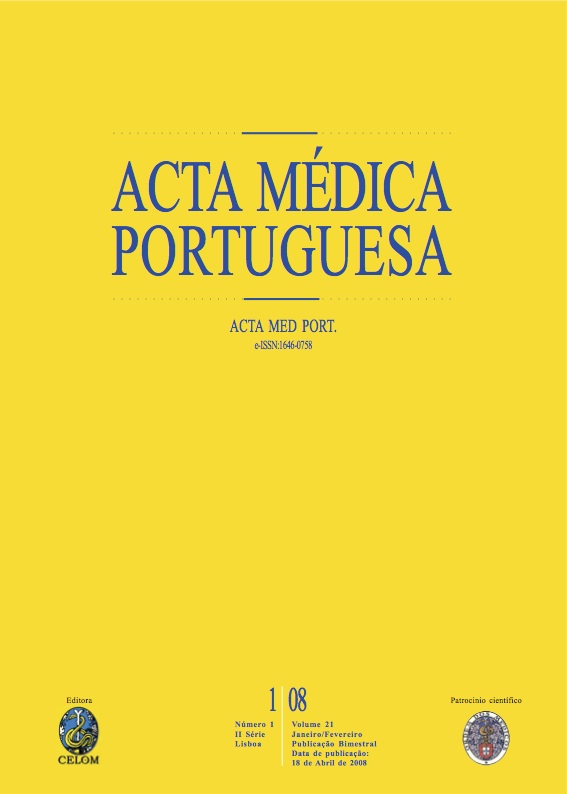Macronutrient and ethanol intake in Portuguese adults.
DOI:
https://doi.org/10.20344/amp.764Abstract
The evaluation of nutrient intake is essential for the definition of health policies and as guidance for the establishment of factors, which could be involved in the occurrence of disease. The study aims to describe energy, nutrients and ethanol intake and the prevalence of inadequate macronutrient intake of Portuguese adults, by gender, age and education. We collected information on 2389 adults (61.6% of women), living in Porto, Portugal, selected by random digit dialling. Dietary intake was estimated by a validated semiquantitative food frequency questionnaire, covering the previous year. Nutrient intake data was obtained using the software Food Processor Plus, adapted to Portuguese foods. The prevalence of nutrient inadequate intake was established by comparison with the Acceptable Macronutrient Distribution Ranges of Dietary Reference Intakes: 10-35% (proteins), 45-65% (carbohydrates) and 20-35% (total fat). The average contribution of protein, carbohydrates, total fat and ethanol to the total daily energetic intake was 18.4%, 48.9%, 29.3% and 5.0%, respectively. The consumption of energy and macronutrients was inversely related with age and directly with education. The higher ethanol consumption was found among men with 50-64 years and less educated (= 4 years). More than 80% of the adult population of Porto reported an intake of protein, carbohydrates and total fat, according to the Acceptable Macronutrient Distribution Ranges of Dietary Reference Intakes. Total fat was the macronutrient with the highest prevalence of inadequate intake (17.1% in women and 21.0% in men).Downloads
Downloads
How to Cite
Issue
Section
License
All the articles published in the AMP are open access and comply with the requirements of funding agencies or academic institutions. The AMP is governed by the terms of the Creative Commons ‘Attribution – Non-Commercial Use - (CC-BY-NC)’ license, regarding the use by third parties.
It is the author’s responsibility to obtain approval for the reproduction of figures, tables, etc. from other publications.
Upon acceptance of an article for publication, the authors will be asked to complete the ICMJE “Copyright Liability and Copyright Sharing Statement “(http://www.actamedicaportuguesa.com/info/AMP-NormasPublicacao.pdf) and the “Declaration of Potential Conflicts of Interest” (http:// www.icmje.org/conflicts-of-interest). An e-mail will be sent to the corresponding author to acknowledge receipt of the manuscript.
After publication, the authors are authorised to make their articles available in repositories of their institutions of origin, as long as they always mention where they were published and according to the Creative Commons license.









